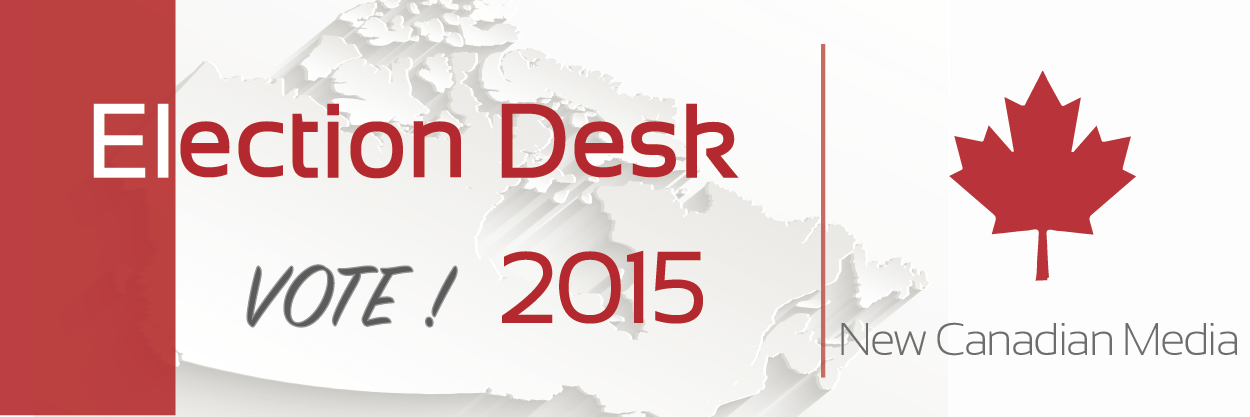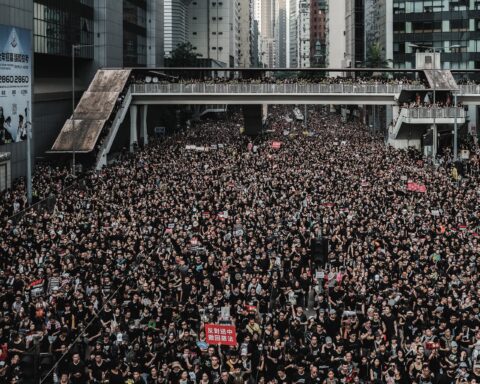Every city has its own urban legend. Vancouver’s fantasy over the last few years is that it has the world’s second most unaffordable housing.
On the back of this piece of unchallenged, unverified claim, Canadian opinion makers and media have been portraying a city pushed to a breaking point by a runaway housing crisis caused mostly by wealthy immigrants and corrupt Chinese officials fleeing to Vancouver with stolen money.
A more twisted version paints Canadians of Chinese descent as Beijing’s pawns in a long-term chess game to take over Vancouver and its housing market.
Either way, the city’s rising housing cost has become an issue in this year’s federal election with Chinese buyers firmly cast as the villain in profiteering at the expense of the city and its regular working people.
The political pressure has led Prime Minister Stephen Harper to announce his government is investing $500,000 to gather “comprehensive data” and study the impact of foreign investment in Canada’s real estate market.
This special five-part series deconstructs the narrative to present the issue in a broader framework.
In 2013, when the Canadian media was trumpeting Vancouver’s second spot in a housing unaffordability list based on a nine-country survey by a U.S.-based consultancy, Demographia, The Atlantic magazine reported seven Chinese cities were among the world’s top 10 for having the least affordable housing.
Using data from the International Monetary Fund (IMF), the magazine placed Beijing, Shanghai, Shenzhen, Hong Kong and Tianjin in the top five of the world’s least affordable housing list, with Guangzhou in eighth and Chongqing 10.th.
Singapore ranked 15th, while Vancouver did not even make the top 15.
A contrarian position
Victor Wong, executive director at the Toronto-based Chinese Canadian National Council (CCNC), is an active participant in online discussions on Vancouver’s housing issues.
Wong takes the politically incorrect stance of challenging the prevailing narrative that Vancouver’s middle class faces a housing crisis, while agreeing with official findings that foreign buying accounts for only a small percentage of real estate transactions and ownership.
In responding to articles on mainstream news sites, he regularly pulls out listings and data from www.MLS.ca to prove his point that there’s still plenty of affordable houses, townhomes and apartments in Metro Vancouver that are within reach of middle-income families.
“I disagree with the alarmist, racist coverage in the mainstream media. Why would they want to interview me?”
It hardly surprises that his views are not welcomed or sought out by the Canadian mainstream media. Wong occasionally spars with Ian Young on the SCMP site, but the journalist has not interviewed him for any of his stories.
For staking out a contrarian position, Wong is often criticized by other online participants who insinuate the B.C.-born Canadian is either working for the real estate industry, or worse, the Chinese government.
“I disagree with the alarmist, racist coverage in the mainstream media. Why would they want to interview me? They’ve gone so deep in their narrative of widespread Chinese and foreign buying that they can’t back out now,” he said in a phone interview from his Toronto office.
Commenting on a May 4 Vancouver Sun article calling for restrictions on foreign buyers, he wrote: “A review of listings at www.mls.ca shows that about 50 per cent of all homes for sale are priced under $600,000 and about 12 per cent – one in eight – are priced above $2 million.”
He offers no sympathy for Eveline Xia’s populist “#DontHave1Million” complaint or Saeid Fard’s lament that young professionals have little hope of buying a single-family house in the city. A day after about 150 people attended Xia’s May 24 protest rally in downtown Vancouver, Wong wrote, “the same number of home buyers made deals on purchasing a home.”
Don’t have C$1 million?
“Actually, you need C$670,000 for the median priced home in Greater Vancouver. More than 70 per cent of the houses listed at www.mls.ca are priced below C$1 million,” he wrote.
On May 24, during the peak spring season, he found 5,779 listings of homes with two bedrooms or more priced between C$300,000 and C$1 million, including about 1,000 single detached homes in Vancouver and the suburbs.
“It’s no different from other major cities around the world. The expanding economy draws in more people, but land supply remains the same.”
Just over five months later, on September 27, the MLS site revealed there were 2,360 listings of homes that met with that set of criteria. The vast majority were apartments, many between 900 and 1,200 sq ft in size that could accommodate a small family – common in many major cities around the world.
Wong urges young professionals to focus on townhomes and large apartments given the limited number of single-family houses available in Vancouver’s finite geography.
“It’s no different from other major cities around the world. The expanding economy draws in more people, but land supply remains the same. There are only 75,000 detached homes in all of metro Vancouver, so prices will rise in response to demand,” he said.
Vancouver and its suburbs are now home to a record 2.5 million people and still growing.
In making his point that affordable housing still exists in metro Vancouver, Wong highlights another shortcoming with the media’s use of the Demographia survey. It publishes a price that encompasses single-family houses, townhomes and apartments to represent Vancouver’s median housing cost.
Exclude luxury homes costing at least C$3 million and single-family houses worth C$1.2 million or more, that median cost for housing drops significantly.
Exclude luxury homes costing at least C$3 million and single-family houses worth C$1.2 million or more, that median cost for Vancouver’s housing drops significantly.
Also, Demographia has shown an inconsistent methodology in its calculation of the median housing cost: in Singapore’s case, it uses only the prices of government-subsidized apartments and excludes the significant, but expensive, apartment and house markets, thus resulting in the country having an unrealistically low median housing price.
This explains why Singapore ranks just 89th in Demographia’s housing unaffordability list, far below Vancouver’s second position behind Hong Kong.
Racializing the issue
Wong said the mainstream media has been racializing the issue of rising cost for the purpose of blaming migrants, especially the Chinese, instead of finding solutions.
He said the “real” housing crisis in Vancouver lies not with the middle class, but society’s lower rungs, which have long been plagued by the problem of homelessness and severe unaffordability.
“There are 10,000 on the waiting list for social housing and large groups of Vancouverites pay more than 30 per cent of their income for rental housing,” he said, calling on governments at all levels to help finance co-op housing especially on state-owned land or through land swaps.
His views overlap with two non-mainstream articles written separately in 2013 by Jim Sutherland and Nathan Crompton.
Sutherland’s piece, “Vancouver: Not as Expensive as You Think”, in the Vancouver Magazine underlines the fact that Canada’s most expensive city for housing is less costly or unaffordable compared with many other cities around the world.
Crompton, a left-wing writer and campaigner, denounces what he calls the media’s racist reporting in linking empty condominiums to foreign investors when, in fact, most are owned by locals.
“So why is the “foreigner thesis” so popular among Vancouver’s political elite? One answer is that it allows the government to get away with its anti-affordable housing policies,” wrote Crompton.
Read Vancouver and Unaffordable Housing Part 1: A Global Issue
Read Vancouver and Unaffordable Housing Part 2: A Tale of Many Cities
Read Vancouver and Unaffordable Housing Part 4: Lots of Statistics, and a Few Lies
Read Vancouver and Unaffordable Housing Part 5: The China Factor




